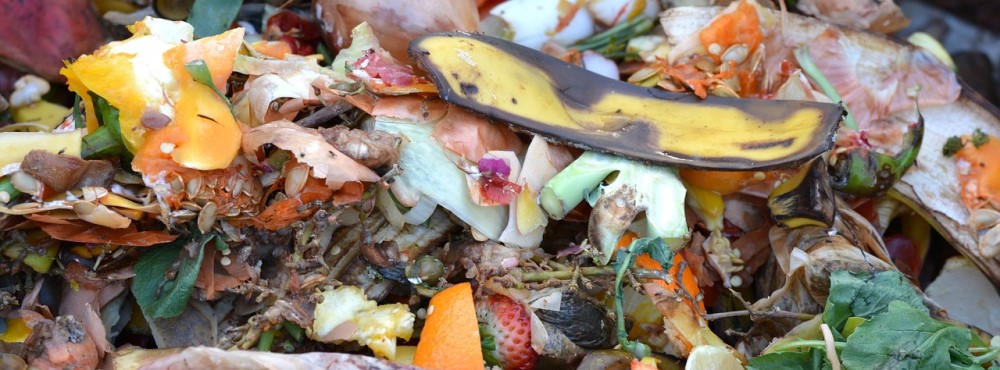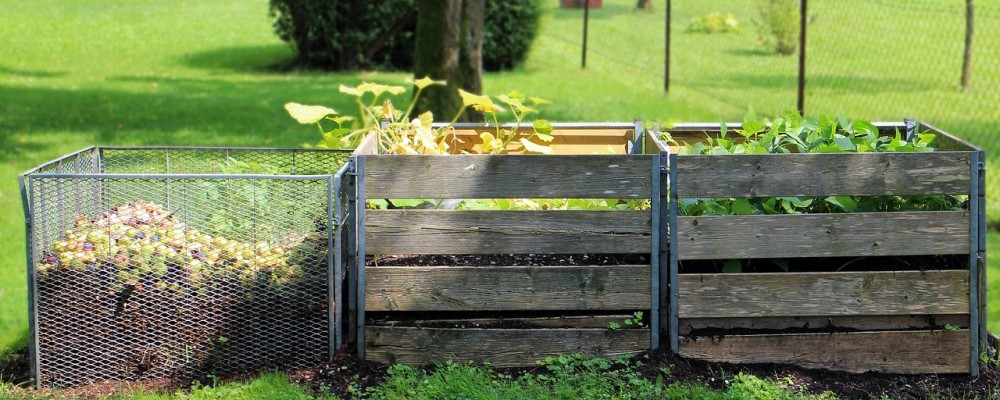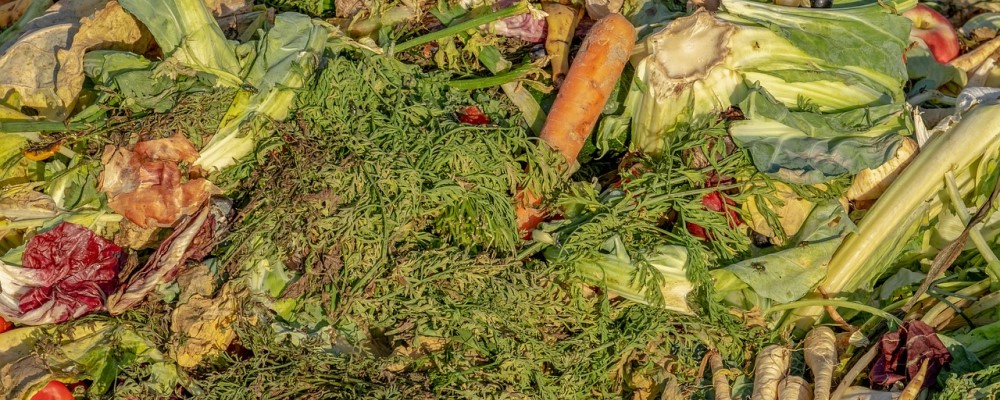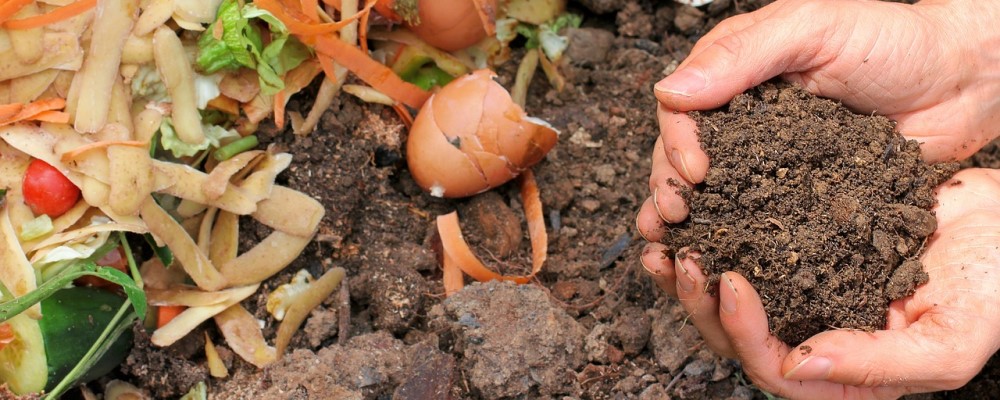Composting at home is the solution you need if you’re looking for a sustainable way to reduce waste and improve your garden’s health. By setting up a worm bin, you can easily transform organic waste into nutrient-rich soil for your plants. This process enhances soil structure and retains moisture, attracts beneficial organisms, and reduces the need for pesticides and fertilisers. In addition, composting contributes to carbon sequestration and builds resiliency to climate change. Discover the great benefits of composting for your family in this informative article.
Key Takeaways
- Composting at home can improve soil structure and health by adding organic matter.
- Composting reduces the waste that goes to the dump, cutting methane emissions and conserving resources.
- Using finished compost in your garden can attract beneficial organisms, reduce the need for pesticides and fertilisers, and help retain moisture and nutrients in the soil.
- Composting at home can be economically beneficial by converting food waste into a valuable resource and reducing landfill costs.
Table of Contents

Composting At Home
Composting at home is an excellent option if you’re interested in reducing waste and improving soil health. Composting involves the natural decomposition of organic materials into nutrient-rich compost that can be used to nourish your plants and garden. By composting in your backyard, you can divert food scraps and yard waste from the landfill while creating a valuable resource for your family’s gardening needs. Remember only to compost certain materials like fruit and veggie scraps, eggshells, and yard trimmings, while avoiding items such as meat, dairy products, and pet waste.
What is Composting?
Composting is the process of breaking down organic materials into nutrient-rich fertilisers that you can use in your garden. It is a great way to reduce food waste and create a sustainable solution for your family.
Here are three key benefits of composting at home:
- Reducing food waste: Composting allows you to divert food waste from your local dump, where it produces harmful methane gas. Instead, you can transform it into a nutrient-rich soil amendment that will nourish your plants.
- Creating a compost pile: Setting up a compost pile in your backyard is simple and cost-effective. You can use a variety of organic materials, such as fruit and vegetable scraps, coffee grounds, and grass clippings, to create the perfect balance of carbon and nitrogen.
- Promoting home composting: Composting at home not only benefits your own garden but also encourages others in your community to adopt sustainable practices. It’s an easy way to impact the environment while reducing waste positively.
Start composting at home today and reap the many benefits it offers for both yourself and the planet!
Why Compost at Home?
When composting at home, you can contribute to a more sustainable future and nourish your garden with soil that’s packed with nutrients. Composting is the process of breaking down organic waste, such as food scraps and grass trimmings, into a dark, crumbly substance called compost. This compost can be added to your soil, enriching it with essential nutrients and improving its structure.
By diverting organic waste from landfills through home composting, you can reduce methane emissions, potent greenhouse gases contributing to climate change. Also, compost can help in the home by helping conserve water by improving the soil’s ability to retain moisture. It also reduces the need for chemical fertilisers and pesticides, promoting healthier plants and a safer environment for you and your family. Start composting today and enjoy the environmental benefits while creating fertile soil for your garden.
Composting in Your Backyard
To start composting in your backyard, you’ll need a designated area and the right materials. Choose a spot that is convenient for you and easily accessible. It could be a corner of your yard or even a small container on your balcony if you have limited space. Once you have chosen the location, gather the necessary materials such as food scraps and garden waste. These include fruit and veg scraps, eggshells, leaves, grass clippings, and small branches. Avoid adding meat, dairy products, or greasy foods as they can attract pests. Layer these materials in your compost bin or pile, making sure to alternate between dry (leaves) and wet (food scraps) components. Turn the pile occasionally to provide oxygen for decomposition. With time and proper care, you will have nutrient-rich compost to use in your home garden for healthier plants and soil.
What You Can Compost
In your compost pile, you can include various organic materials, such as fruit and veggie scraps, coffee grounds, eggshells, leaves, grass clippings, and small branches. These items will provide the necessary nitrogen and carbon for the decomposition process. Here are six everyday items you can compost:
- Fruit and vegetable scraps: These leftovers from meals are great additions to your compost pile. They break down quickly and add valuable nutrients to the final compost.
- Coffee grounds: Don’t throw away the used grounds after brewing your morning cup of coffee. They are rich in nitrogen and make an excellent addition to your compost.
- Eggshells: Crushed eggshells are a good source of calcium for your plants and help balance the acidity of the compost.
- Grass clippings: Your compost will benefit from the nutrients in your freshly-cut lawn
- Dry leaves: They can be a pain to collect but are a carbon-rich addition for your compost heap
- Shredded cardboard and paper: Make sure there’s no wax coating, tape, or glue and that the paper is not glossy or coloured
By including these organic materials in your compost pile, you can create nutrient-rich soil that benefits both your family’s garden and the environment.
What Not to Compost: 10 Common Items to Avoid
Take care not to throw just anything into your compost and hope that it turns into black gold! There are plenty of things that won’t decompose properly or are simply unsuitable.
Take a look at the following list of 10 common items that people might want to throw in the reasons you shouldn’t:
| Item | Reasons for Not Composting |
|---|---|
| Meat and Dairy | Attracts pests and creates odor; takes longer to break down. |
| Grease and Oils | Slows down decomposition and can create an unhealthy compost. |
| Diseased Plants | Pathogens can survive and spread in the compost pile. |
| Pet Waste | May contain harmful bacteria and parasites. |
| Synthetic Materials | Plastics, metals, and non-biodegradable items won’t break down. |
| Charcoal Ashes | Contains chemicals harmful to plants and soil. |
| Glossy Paper | Chemicals in the glossy coating can be detrimental. |
| Citrus Peels | High acidity can disrupt the compost’s pH balance. |
| Weeds with Seeds | Seeds can survive and sprout when the compost is used. |
| Large Branches | Take too long to decompose and can disrupt the pile. |

Great Benefits of Composting for Soil, Economy and Environment
Composting offers several great benefits for soil, the economy, and the environment. It improves soil health by adding organic matter and nutrients, which can enhance plant growth and reduce erosion. Additionally, composting conserves water by improving soil moisture retention and reducing runoff. It also helps to reduce personal food waste and lessen the amount of waste that ends up in landfills, leading to a more sustainable waste management system overall.
Improves Soil Health and Lessens Erosion
Composting improves the health of your soil and reduces erosion, providing more nutrients for your plants. When you compost at home, organic materials break down into nutrient-rich compost that can be added to your garden beds or used as a top dressing for potted plants. This natural fertiliser enhances soil structure, retains moisture, and promotes healthy root growth for stronger, more vibrant plants.
More nutrients for your plants
Get ready to give your plants a nutrient boost with composting at home! Compost provides numerous benefits for your plants and your family. Here are four reasons why compost is beneficial for your plants:
- Increased Nutrients: Compost is rich in essential nutrients like nitrogen, phosphorus, and potassium that plants need to thrive.
- Improved Soil Structure: Compost helps improve soil structure, allowing roots to penetrate easily and access water and nutrients.
- Enhanced Water Retention: Compost helps the soil retain moisture, reducing the need for frequent watering.
- Disease Resistance: The nutrients in compost strengthen plant immune systems, making them more resistant to diseases.
Start composting today and see the amazing benefits it brings to your plants!
Composting Conserves Water
Conserving water is one of the benefits of composting at home. When you compost, you create nutrient-laden soil that helps retain moisture in your garden or plants. The compost acts as a sponge, holding water and preventing it from evaporating quickly. This means you won’t need to water your plants as often, saving both time and water.
Using compost in your garden can reduce the need for irrigation and conserve water resources. In fact, studies have shown that gardens with compost require up to 30% less water compared to those without compost. Additionally, the organic matter in the compost improves soil structure, allowing it to hold more water and reducing runoff.
Composting at home benefits your plants and helps conserve precious water resources for future generations. By incorporating this sustainable practice into your routine, you are making a positive impact on the environment while enjoying beautiful, thriving plants in your own backyard.
Reduce pollutants in stormwater
When you compost, you create nutrient-rich soil that improves water filtration and reduces storm runoff. This means fewer pollutants, like pesticides and chemicals, will enter our waterways, resulting in healthier ecosystems and fewer water-related diseases.
Fewer pesticides, fewer diseases
Using compost in your garden means you’ll have fewer pests and diseases, resulting in healthier plants for you and your family.
- Compost is a natural fertiliser that enriches the soil with organic material, promoting plant growth.
- The nutrients in compost help plants develop strong immune systems, making them less susceptible to pests and diseases.
- Compost improves soil structure, creating an environment that is less favourable for pests and pathogens.
- Using compost instead of chemical pesticides prevents you from exposing yourself and your family to harmful toxins.
- Composting lessens the need for synthetic fertilisers and pesticides, promoting a more sustainable approach to gardening.

Reduces Personal Food Waste
Composting at home helps families decrease their personal food waste. By composting, you can divert food scraps and yard waste from the dump and instead turn them into nutrient-rich compost for your garden. When you throw away food scraps, they decompose in landfills and produce methane, a potent greenhouse gas. However, when you compost these materials at home, they break down naturally and release fewer greenhouse gases.
Instead of throwing away food scraps, start a compost bin in your backyard or even on your balcony or countertop using a small bin. Collect fruit and vegetable peels, coffee grounds, eggshells, and other compostable materials throughout the week. Then, add them to your compost bin instead of throwing them in the trash. Over time, these materials will break down into rich compost that can be used to fertilise your plants.
By reducing personal food waste through composting, you help the environment and save money by producing your own natural fertiliser. So why not give it a try? Start composting at home today!
Composting Reduces Landfills
Composting reduces methane emissions at landfills, which significantly benefits the environment. When organic waste, such as food scraps and garden trimmings, decomposes in landfills without oxygen, it produces methane gas, a potent greenhouse gas contributing to climate change. By composting these materials instead, you can divert them from the landfill and allow them to break down in a controlled environment with proper airflow, significantly reducing methane emissions.
Reduces Methane Emissions at Landfills
You can help decrease landfill methane emissions by reducing food waste through composting. When organic waste, like food scraps and grass trimmings, ends up in landfills, it decomposes anaerobically and produces methane gas. Methane is a potent greenhouse gas that contributes to climate change. However, by diverting these materials to your compost bin instead of the landfill, you can break down the organic matter aerobically and significantly reduce methane emissions — composting benefits both the environment and our future generations.
Lowers The Cost of Farming
Composting can lower production costs for farmers in several ways. Farmers can reduce their reliance on expensive chemical fertilisers by using compost as a natural fertiliser. Compost also improves soil structure and moisture retention, decreases the need for irrigation and saves on water costs. Additionally, compost helps suppress plant diseases and pests, eliminating the need for costly pesticides.
Lower Production Costs for Farmers
To lower production costs for farmers, you can use compost to improve soil fertility and reduce dependence on expensive fertilisers and pesticides. Compost is made from the decomposition of organic matter, such as food scraps and garden waste. When added to the soil, compost enriches it with nutrients, promotes healthy plant growth, and increases water retention. Some farmers even refer to compost as ‘Black Gold’ since it is highly regarded. Composting is an excellent way for farmers to save money on costly inputs while maintaining productive and sustainable agricultural operations.

How to Compost
When it comes to composting, there are a few key points to remember:
- the ingredients you add to your compost
- maintaining the right temperature
- consistent aeration
- maintaining moisture levels.
Choosing the right mix of nitrogen-rich (green) and carbon-rich (brown) materials for your compost pile is essential for successful decomposition. Additionally, ensuring that your compost pile stays at the optimal temperature range of 130-160°F promotes efficient breakdown of organic matter. Regularly turning or aerating the pile helps provide oxygen to the microorganisms responsible for decomposition. Lastly, keeping your compost pile moist but not waterlogged is important for microbial activity and preventing it from drying out.
Compost Ingredients
For your compost bin, gather the necessary ingredients, such as fruit and vegetable scraps, coffee grounds, crushed eggshells, and non-glossy paper or cardboard for bedding. These materials provide a balanced mix of carbon-rich and nitrogen-rich components that are essential for the composting process.
Here is a table showing some examples of compostable materials:
| Carbon-Rich Materials | Nitrogen-Rich Materials |
|---|---|
| Shredded paper | Fruit and vegetable scraps |
| Cardboard | Coffee grounds |
| Leaves | Grass clippings |
By combining these ingredients in the right ratios, you create an ideal environment for microorganisms to break down organic matter into nutrient-rich soil. Remember to chop up larger pieces of food waste to speed up the decomposition process. As you add more green (nitrogen) and brown (carbon) materials to your compost bin, make sure to mix them well to maintain a balanced ratio. With time and proper maintenance, you will have high-quality compost that can be used in your garden to enrich soil health and promote plant growth.
Overall, composting reduces waste and provides numerous environmental benefits by diverting organic matter from landfills and creating nutrient-rich soil that improves water retention, reduces erosion, sequesters carbon dioxide, and supports healthier plant growth.
Temperature
Maintaining the proper temperature is crucial for successful composting. Composting at home benefits your family, and understanding temperature requirements is essential. The ideal temperature range for composting is between 135 to 160 degrees Fahrenheit (57 to 71 degrees Celsius). This range promotes the breakdown of organic materials and accelerates the decomposition process. When the temperature rises within this range, beneficial microorganisms thrive, breaking down materials faster.
On the other hand, if the temperature drops below this range, decomposition slows down significantly. Regularly turn or aerate your compost pile to maintain a suitable temperature to provide oxygen and facilitate heat distribution. Adding materials with high nitrogen content, such as cut grass or kitchen scraps, can also raise temperatures. Monitoring and adjusting the temperature ensures optimal conditions for efficient composting in your home setup.
Consistent Aeration
Consistent aeration ensures proper decomposition and prevents unpleasant odours in your compost pile. Oxygen is necessary for the microorganisms that break down organic matter to thrive. Without enough airflow, the pile can become compacted and anaerobic, leading to slow decomposition and the production of foul-smelling gases.
To maintain consistent aeration in your compost pile, it is important to turn or mix the materials regularly. This helps to introduce oxygen and distribute moisture throughout the pile. You can use a pitchfork or shovel to gently turn the compost every few weeks, bringing material from the outer edges towards the centre.
Another method of providing aeration is by using a compost aerator tool. This tool has prongs or spikes that you can insert into the pile and twist to create air channels. These channels allow oxygen to penetrate deep into the compost, promoting faster decomposition.
By consistently aerating your compost pile, you will create an environment that supports beneficial microorganisms and speeds up decomposition. This will result in nutrient-rich compost that you can use in your garden to nourish plants and improve soil health.
| Benefits of Consistent Aeration |
|---|
| Faster decomposition |
| Reduced odour |
| Improved nutrient content |
Remember, consistent aeration is just one aspect of successful composting. It is also important to maintain moisture levels, monitor temperature, and achieve the right balance of carbon and nitrogen-rich materials. With these factors in mind, you can enjoy all the benefits of composting at home for your family’s benefit!
Maintaining Moisture
Keeping the moisture levels in your compost pile consistent is important to ensure healthy decomposition. Adequate moisture is crucial for the breakdown of organic materials and the activity of beneficial microorganisms. Here are some tips for maintaining moisture in your compost:
- Water regularly: Keep your compost moist but not overly saturated. Aim for a damp sponge-like consistency.
- Monitor rainfall: If you live in an area with frequent rain showers, adjust watering to prevent waterlogging.
- Cover your pile: Use a tarp or cover to protect your compost from excessive rain or drying out under direct sunlight.
- Turn and mix: Regularly turning and mixing your compost helps distribute moisture evenly throughout the pile.
Maintaining proper moisture levels will promote efficient decomposition and help you achieve nutrient-rich compost for all your gardening needs. Remember that a well-maintained compost pile should feel slightly moist and have a pleasant earthy smell.
Conclusion
Composting at home offers great benefits for your family. By setting up a worm bin and following the proper steps, you can easily turn organic waste into nutrient-rich soil for your plants. Composting improves soil health, retains moisture and nutrients, attracts beneficial organisms, and reduces the need for pesticides and fertilisers. It also contributes to carbon sequestration and builds resiliency to climate change. So start composting today and enjoy its many advantages to your garden and the environment.
About the Author

CHARLIE
Hi, my name is Charlie. I’m the founder of Just Organics. I have a background in Environmental Health and am passionate about animal welfare. I have been using organic products for more than ten years and would like to share my love of products made from nature.
I hope you find value in our articles. If there’s anything you’d like us to write about or if you’d just like to connect with us, feel free to send us a message.
